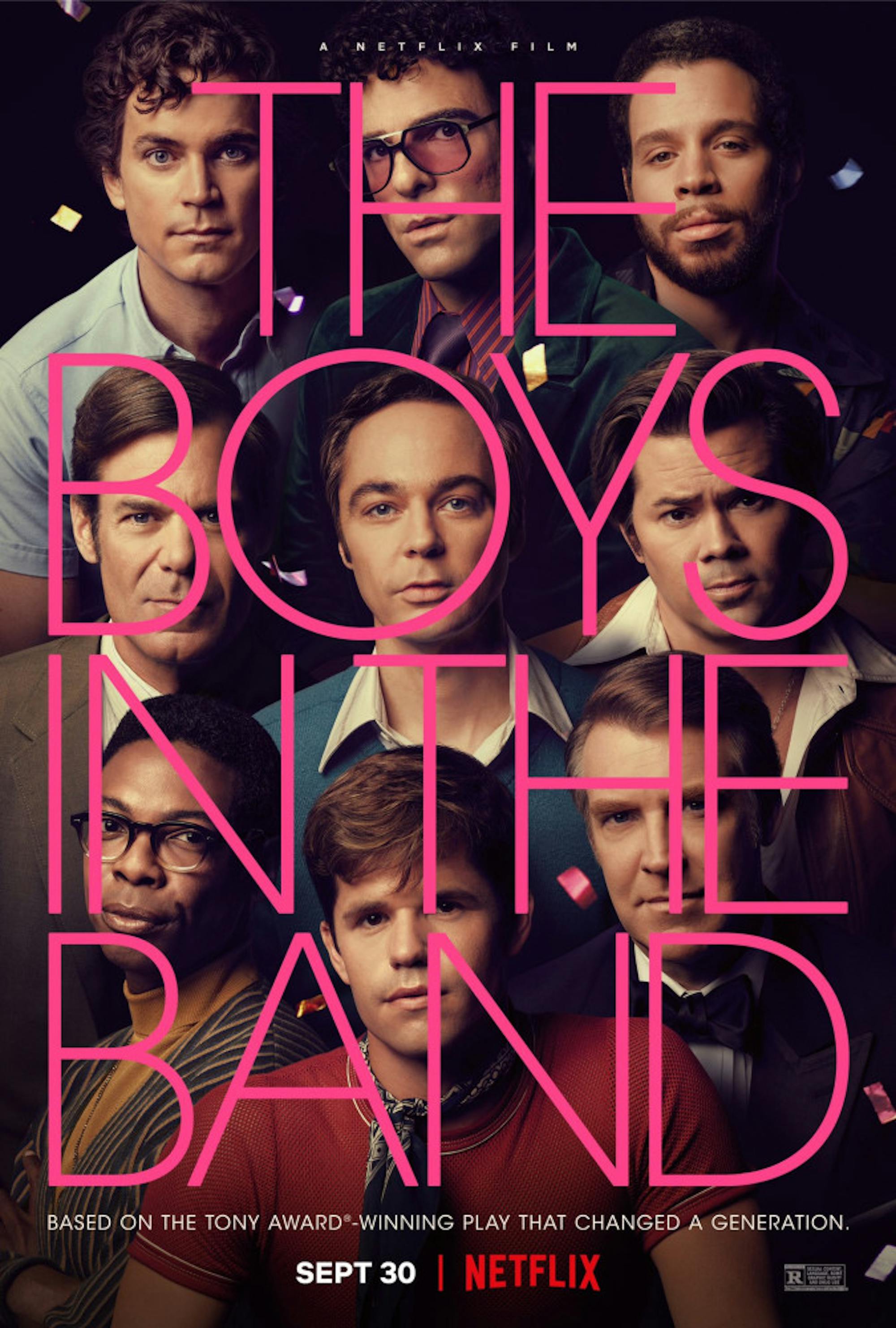A lot has changed since the mid-20th century, but "Boys in the Band" (2020) reminds us that some struggles remain universal for gay men. With clear roots in performance, and an all-star, all-gay cast to boot, the movie has garnered a lot of attention. But does it deliver?
"Boys in the Band" tells the story of eight gay men living in New York in the 1960s. We follow a twisting night of a birthday party with surprise visits and tense moments between the tight-knit group.
Its history, however, is not that simple: "Boys in the Band" first premiered off-Broadway in 1968. Its success was rewarded with a feature film a few years after. Again, the story was brought back in a 2018 Broadway reprisal. Now, courtesy of Netflix, it’s back on screens for another generation to enjoy playwright Mart Crowley’s hypnotic storytelling. Its return reminds us that some good things never change.
Producer Ryan Murphy’s golden touch is evident in the film’s glorious cinematic opening. It begins with a lighter flick followed by a long, tense drag of a cigarette. We see a silhouette of a man move across his lounge to a record player. “Hold On, I’m Coming” (1966) blares from his speakers, and we are launched into a nostalgic montage that introduces the movie’s characters as it goes along. Each scene gives us an intimate glimpse into the nuanced and complex lives that gay men were allowed to live in New York, despite the political and social restrictions of the time; one can be an interior designer, a librarian, a teacher. A sense of excitement and opportunity fills the air in the first few minutes. This soon transitions to the slower-paced, dialogue-based nature of the rest of the movie.
The star-studded cast includes Jim Parsons, Zachary Quinto, Matt Bomer and other favorites. It is particularly captivating to see Parsons excel outside of his role as Sheldon on "The Big Bang Theory" (2007–2019). Greater than the name value, the cast consistsentirely of gay men — a feat rarely achieved, even for movies which focus on gay characters such as "Brokeback Mountain" (2005) or "Call Me by Your Name" (2017).
Above all, "Boys in the Band" allows gay men to be the center of the narrative instead of being an accessory to it. The film could go further in its representation of people of color on screen, as it still consists mainly of white men. Adding diversity of experience is crucial to fulfill its wide ambitions.
What can’t be ignored, however, is the judgment these men endure every day. The tense silence and long glances they must tolerate while in public reminds us that society still has not grown to accommodate them. Yet, they are still able to find a sense of community and comfort when they come together.
The movie touches on many other issues pertinent to gay men then and now: self-hate, identity, lost love, authenticity and the trauma which accompanies it all.
The dense dialogue exchanges between characters provide most of the character development and plot. Some moviegoers may be turned away by the relative lack of visual and alternative storytelling methods, but I enjoyed the more traditional approach it takes. It made me feel like I was in a Broadway theater watching the story unfold live on stage, except it was just another quiet night in my suite. A personal favorite is the hilariously sharp jokes shared between these men, which demonstrate their emotional intimacy.
The main story takes place almost entirely in one relatively small New York apartment. In one way, it acts as a pressure cooker which intensifies so many of the film’s high points. However, its bottle-like nature can also make the story feel trapped and stagnant.
"Boys in the Band" does two things: It links the past and present in an entertaining but informative way, reminding us of the progress made thus far, while also broadcasting and personalizing its message for generations of viewers who, on paper, couldn’t be more different. That’s where "Boys in the Band" gets its appeal.
Correction: A previous version of this article misnamed playwright Mart Crowley. Additionally, the article stated that "Boys in the Band" premiered on Broadway in 1968, when in reality the play premiered off-Broadway. The article has been updated to reflect these changes. The Daily regrets this error.






